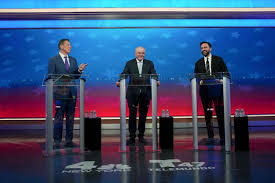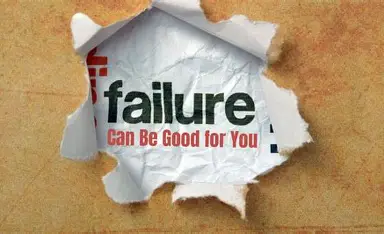New York Mayoral Candidates Trade Blows in Fiery Final Debate Ahead of Election

The final New York City mayoral debate before the November 4 election erupted into one of the most confrontational political showdowns in recent memory, featuring Zohran Mamdani, Andrew Cuomo, and Curtis Sliwa trading sharp personal attacks and ideological jabs. The high-stakes debate, held less than two weeks before voters head to the polls, highlighted stark contrasts among the three front-runners — and exposed deep tensions surrounding the city’s future direction.
The debate notably took place without incumbent Mayor Eric Adams, who dropped out earlier this month. Leading the race by a double-digit margin, Zohran Mamdani, a Democratic Socialist Assemblyman representing Astoria, found himself under coordinated attack from both independent candidate Andrew Cuomo and Republican Curtis Sliwa, as they sought to consolidate the anti-Mamdani vote.
Sliwa, the Guardian Angels founder and talk radio host, dismissed calls from several billionaires and Cuomo allies, including businessman John Catsimatidis, to withdraw from the race, defiantly declaring, “It’s us versus them.” Mamdani fired back, accusing his opponents of focusing more on political maneuvering than presenting real solutions. Meanwhile, Cuomo — who has inherited much of Adams’s support base — made headlines after being spotted with the outgoing mayor post-debate, hinting at a possible tacit endorsement.
Immigration, Housing, and Public Safety Take Center Stage
Immigration was one of the night’s flashpoints, as candidates responded to the federal ICE raids targeting immigrant street vendors. Cuomo criticized the agency for “wasting resources on quality-of-life offenses” and claimed he would have personally intervened with former President Donald Trump to stop the raids. Mamdani labeled ICE “a reckless entity,” vowing to expand street vendor permits, while Sliwa pledged to “negotiate with Donald Trump” to secure protections for New Yorkers, drawing laughter from the audience.
On housing, the contenders debated how to address New York’s worsening affordable housing crisis and record 150,000 homeless students. Mamdani proposed doubling a program that pairs shelter families with city employees and instituting a rent freeze, arguing that the mayor has authority over the Rent Guidelines Board. Cuomo countered that such a freeze would be “economically disastrous,” defending his past rent hikes as “pragmatic governance.” Sliwa opposed the City of Yes zoning reforms supported by Mamdani and Cuomo, claiming they would “destroy neighborhoods under the guise of progress.”
The candidates also clashed on the fate of Rikers Island, slated for closure in 2027. Mamdani reaffirmed his commitment to closing what he called “a stain on our city’s history,” while Cuomo and Sliwa warned that closure would “release 7,000 criminals into the streets.”
Accusations of Bigotry and Misconduct Escalate
The debate took a heated turn when Cuomo confronted Mamdani over accusations of antisemitism, citing a letter from 650 rabbis who claimed the Muslim candidate endangered “the safety and dignity of Jews.” Sliwa went further, baselessly alleging Mamdani supported “global jihad.”
Mamdani, visibly angered, rejected the accusations outright: “I have never, not once, spoken in support of global jihad. These are lies meant to divide New Yorkers.” He promised to strengthen protections for Jewish New Yorkers and introduce a public school curriculum on Jewish history to promote interfaith understanding.
Cuomo himself faced intense scrutiny over his past sexual harassment allegations, as Mamdani asked pointedly, “What do you say to the 13 women you harassed?” Noting accuser Charlotte Bennett was in attendance, Mamdani’s question drew audible gasps. Cuomo dismissed the matter, insisting the cases had been dropped, though several remain in litigation. Lindsey Boylan, another accuser, later commended Mamdani for “speaking truth to power.”
Heated Exchanges and Sharp One-Liners
Throughout the night, barbs flew fast. Mamdani branded Cuomo “a desperate man clinging to relevance,” while Cuomo retorted, “You don’t know how to run a government or handle a crisis.” Sliwa interjected with his trademark humor, quipping, “Mamdani’s résumé could fit on a cocktail napkin — and Cuomo’s failures could fill a public library.”
Despite their fierce disagreements, all three candidates agreed on one issue: retaining Police Commissioner Jessica Tisch. Mamdani argued that reform could occur “without disruption at the top,” while Cuomo and Sliwa both praised Tisch’s handling of rising crime rates.
The Road to November 4
Moderators struggled at times to maintain control as the candidates repeatedly interrupted one another. Veteran host Errol Louis reminded them, “Gentlemen, they know how this works,” eliciting brief laughter amid the tension.
The debate concluded without any of the candidates naming a preferred 2028 presidential hopeful, a rare moment of restraint in an otherwise combative evening.
With early voting set for October 25–November 2, New Yorkers now face a pivotal choice between three sharply contrasting visions for their city from Mamdani’s progressive policies and rent freezes to Cuomo’s technocratic pragmatism and Sliwa’s populist law-and-order approach. One thing is clear: after this explosive final debate, the battle for City Hall has never been more intense.
Recommended Articles
Fiery NYC Mayoral Debate: Mamdani & Cuomo Clash for City's Future

A pivotal New York City mayoral debate unfolded between front-runner Zohran Mamdani, independent Andrew Cuomo, and Repub...
NYC's Migo Fest Shut Down: 'Political Climate' Cited in Shock Cancellation

Migo Fest, a festival celebrating música Mexicana in the New York Tri-State area, has been canceled just one day before ...
Sequoia Capital Faces Leadership Shakeup After COO Resigns Over Islamophobia Controversy

Sequoia Capital’s Chief Operating Officer, Sumaiya Balbale, resigned after raising concerns about Islamophobic social me...
Celebrity Outcry: Hollywood Stars Slam Disney's Jimmy Kimmel Suspension

The indefinite suspension of "Jimmy Kimmel Live" by ABC, following host Jimmy Kimmel's controversial remarks and FCC pre...
Lagos Descends into Chaos: Oworonshoki Residents Face Brutal Midnight Demolitions, Police and Thugs Attack Homes

The Lagos State Task Force has resumed controversial demolition activities in Oworonshoki, displacing residents and spar...
You may also like...
Digital Portfolios Are the New Business Cards; Here’s How to Build One That Gets Seen

In today’s digital-first economy, your online portfolio is your handshake, résumé, and elevator pitch rolled into one. H...
Career Pivoting: Why Changing Paths Might Be the Smartest Move You Make

In a world where stability often overshadows fulfillment, career pivoting may be the smartest move for professionals se...
Why Your First Failure Might Be the Best Thing That Ever Happened to Your Business

Failure isn’t the end of entrepreneurship, it’s the education success never gives. Here’s why your first business collap...
Consumerism vs Culture: Is Africa Trading Values for Trendy Lifestyles?

Is Africa trading its cultural values for trendy lifestyles? Explore how consumerism, foreign brands, and social media p...
The War on Boys: Are African Male Being Left Behind in Gender Conversations

Why are African boys and men often left out of gender empowerment programs? Explore how emotional suppression, lack of m...
Pay Slip, Motivation Slips: The Silent Crisis Among the Working Class

Across Nigeria, millions of workers are trapped in jobs that pay just enough to survive but too little to live. Beneath ...
Premier League's Unsung Heroes: Bournemouth, Sunderland, and Tottenham Shockingly Exceed Expectations

This Premier League season sees teams like Bournemouth, Sunderland, and Tottenham exceeding expectations. Under Thomas F...
El Clasico Fury: Yamal Controversy and Refereeing Blunders Ignite Post-Match Debates
)
Real Madrid secured a 2-1 El Clasico victory over Barcelona amidst significant controversy surrounding a late penalty de...